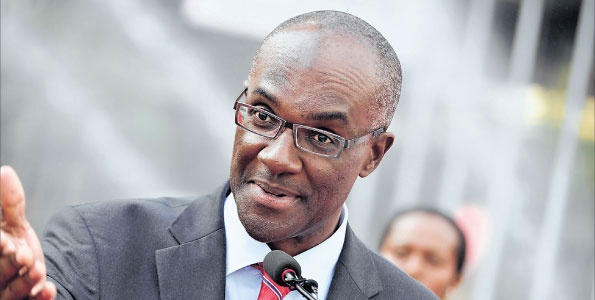By Bizna Brand Analyst
A lot of people have been wondering why under fire KQ CEO Mbuvi Ngunze was not fired after Michael Joseph became the new chairman. Well, there are certain reasons for that. When an under performing CEO is retained, there are reasons that will be given to the public then there are the true reasons.
The reason that was given to the public by Michael Joseph was this,
“Mr Mbuvi is overseeing the renegotiating of loan terms with the airline’s lenders as part of a balance sheet restructuring (and later capital raising) and as such cannot be asked to leave the company. He is crucial to me at the moment and I have told the pilots as much.”
Not so bad.
But all business experts have heard this conventional wisdom many times: Boards of directors often fail to do their jobs when it comes to firing underperforming CEOs. When you study trends of falling companies and read the popular press, you find a knee-jerk reaction that not enough CEOs are fired. According to the Wall Street Journal for example, only 2% of Fortune 500 CEOs on average are fired every year, but that figure might even be less..
There are two costs that present themselves when firing a CEO. Direct costs, such as severance, make up the first component. The second component is what is called “entrenchment” costs, which are intangible costs that board members feel but shareholders do not — for instance a personal relationship between board members and the CEO. There might be a personal cost to board members who terminate the company leader — in the form of the time and stress of making a management change — as well as the loss that directors face in the departure of a business ally or golfing friend.
If there are any entrenchment costs, then boards fail to get rid of CEOs whom shareholders or employees would like to see fired — in short, creating an environment where fewer top executives are let go than should be, based on performance.
if the entrenchment cost of firing a CEO in a company is close to zero — meaning that sacking the CEO will come with only financial costs and no intangible consequences — the person is more likely to be fired.
Another reason why CEOs are rarely fired is to prevent the job from being a hot potato that other talented candidates will be afraid of. The job is always more lucrative when the person who held it before left on his own accord rather than on bad terms. If boards are too quick to push leaders out, new CEOs may also be less inclined to take risks, a shift that could dampen corporate performance over the long term.
Also, much of the upper level management team will defnitely be replaced when a new CEO comes in. And it may take time for that new team to build relationships inside and outside the company, and set a new strategy.
So actually, a company’s profitability is not a good predictor of whether a CEO gets fired or not. This is often a point of outrage in the popular press where the question is asked, “How can a CEO of a money-losing company keep his job?” The reason profits are not a good predictor of CEO firings is that the board of directors looks at a number of other factors when it evaluates a CEO. This includes everything from how the CEO is spending his or her time, to changes in market share for the company, to new projects in the works that may not yet be contributing to earnings.
Now you know why Ngunze was kept on board.










